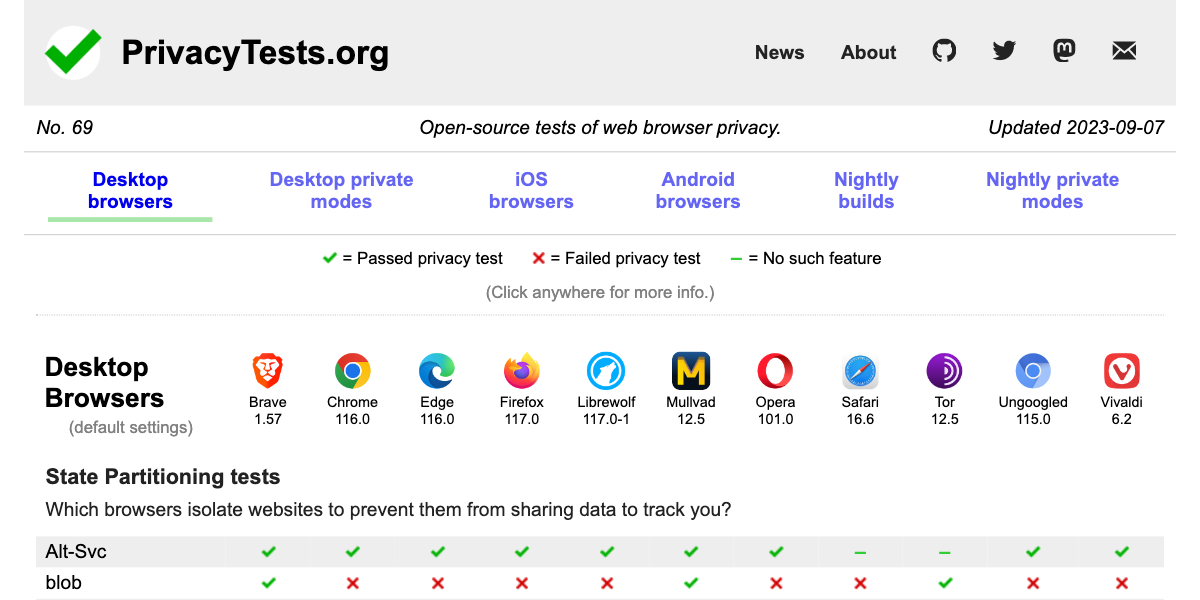Which browsers are best for privacy?
privacytests.orgAn open-source privacy audit of popular web browsers.
https://privacytests.org rate Brave as the best browser.
You must log in or register to comment.
A place to discuss privacy and freedom in the digital world.
Privacy has become a very important issue in modern society, with companies and governments constantly abusing their power, more and more people are waking up to the importance of digital privacy.
In this community everyone is welcome to post links and discuss topics related to privacy.
Some Rules
- Posting a link to a website containing tracking isn’t great, if contents of the website are behind a paywall maybe copy them into the post
- Don’t promote proprietary software
- Try to keep things on topic
- If you have a question, please try searching for previous discussions, maybe it has already been answered
- Reposts are fine, but should have at least a couple of weeks in between so that the post can reach a new audience
- Be nice :)
Related communities
much thanks to @gary_host_laptop for the logo design :)
- 0 users online
- 108 users / day
- 435 users / week
- 1.32K users / month
- 4.54K users / 6 months
- 1 subscriber
- 4.57K Posts
- 115K Comments
- Modlog







Security for the user is obviously what we are talking about. Regular people do not have the knowledge or patience to make informed decisions regarding their technical security; any model that relies on that is going to fail because people will click whatever they need to make stuff work. Even people who do understand the technology do stuff like disabling SSL verification, rather than going through the effort of adding the new CA to their cert list.
Firefox is not doing the same as Chrome. Firefox is adding a feature to disable unverified add-ons on particular domains to stop attacks from malicious add-ons. Chrome is adding a feature that tracks the sites you visit and shares them with other sites to improve ad tracking.
How are these features comparable at all?